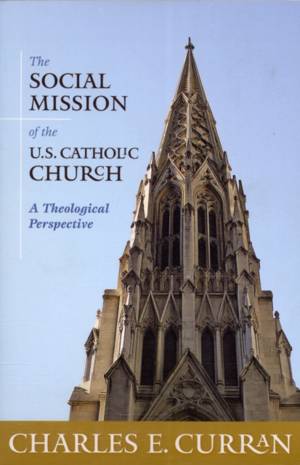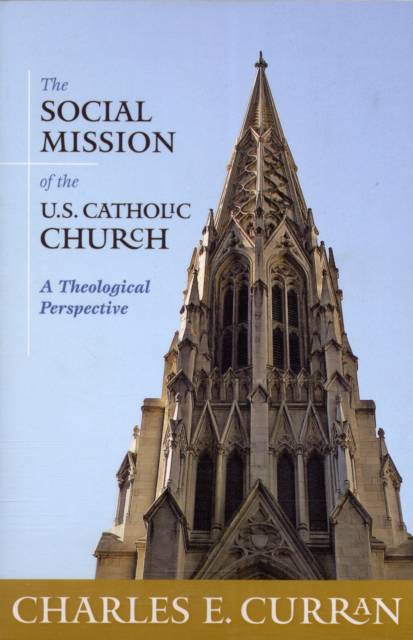
- Retrait gratuit dans votre magasin Club
- 7.000.000 titres dans notre catalogue
- Payer en toute sécurité
- Toujours un magasin près de chez vous
- Retrait gratuit dans votre magasin Club
- 7.000.0000 titres dans notre catalogue
- Payer en toute sécurité
- Toujours un magasin près de chez vous
Description
How does the Church function in the world? What is it called to do, and what does it actually do? Charles E. Curran explores the social mission of the U.S. Catholic Church from a theological perspective, analyzing and assessing four aspects: the importance of social mission, who carries it out, how it is carried out, and the roles that the Church and individual Catholics play in supporting these efforts.
In the early and mid-twentieth century the Catholic Church in the United States tended to focus its social mission on its own charities, hospitals, and schools. But the Second Vatican Council called the Church to a new understanding of social mission, deepening its involvement in and commitment to civic, social, and political life in the United States and abroad. Curran devotes particular attention to three issues that have reflected the Church's strong sense of social mission since that time: abortion, war and peace, and labor.
The Social Mission of the U.S. Catholic Church describes the proper role of bishops, institutions, and movements in the Church, but insists that the primary role belongs to all the baptized members of the Church as they live out the social mission in their daily lives.
Spécifications
Parties prenantes
- Auteur(s) :
- Editeur:
Contenu
- Nombre de pages :
- 210
- Langue:
- Anglais
- Collection :
Caractéristiques
- EAN:
- 9781589017436
- Date de parution :
- 16-12-10
- Format:
- Livre broché
- Format numérique:
- Trade paperback (VS)
- Dimensions :
- 152 mm x 228 mm
- Poids :
- 312 g

Les avis
Nous publions uniquement les avis qui respectent les conditions requises. Consultez nos conditions pour les avis.






